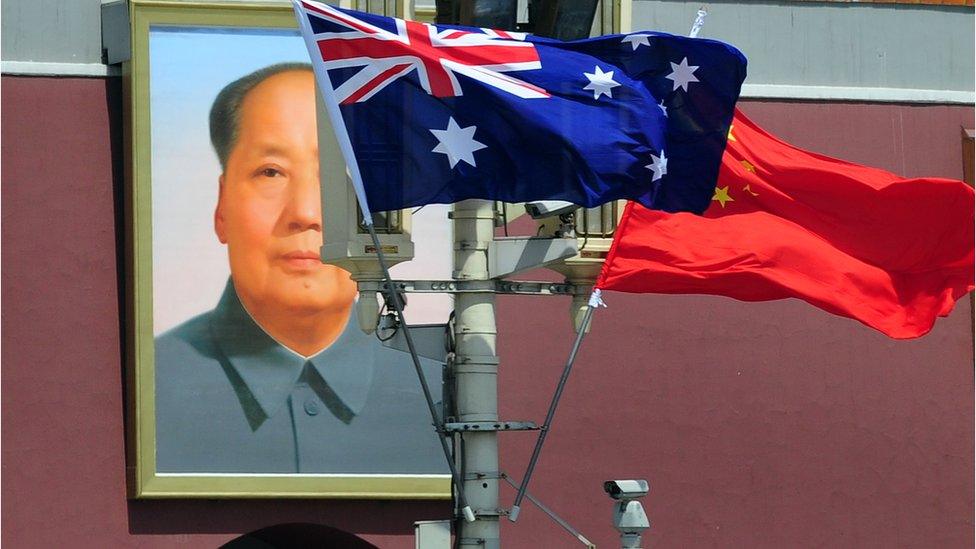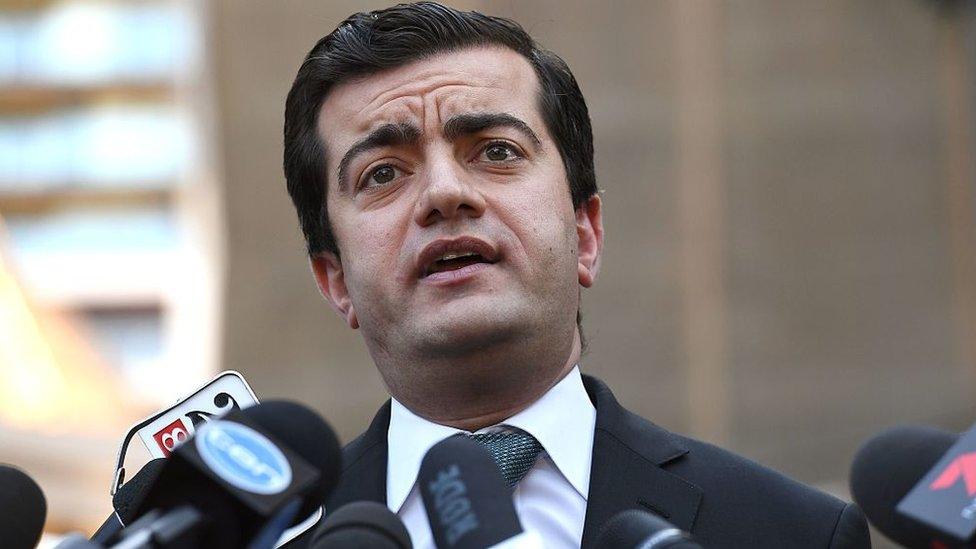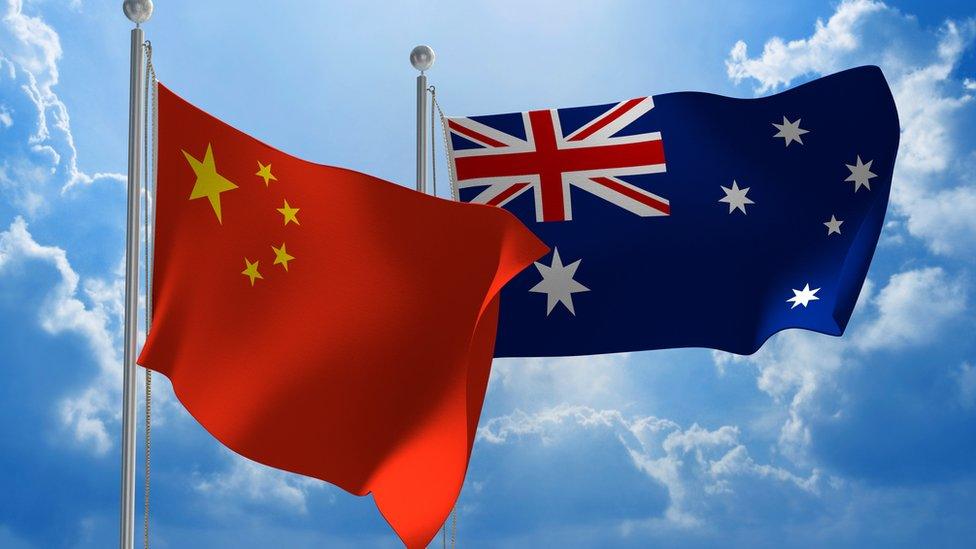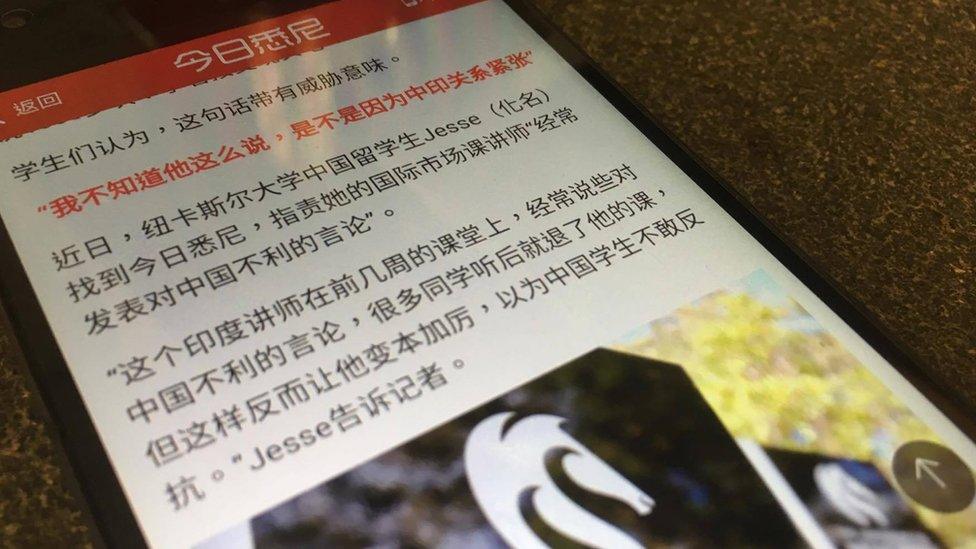Huang Xiangmo: China billionaire mocks 'giant baby' Australia
- Published

There are growing worries in Australia about Chinese influence
A Chinese billionaire and political donor has dubbed Australia a "giant baby" after he lost residency rights.
It is an "objective fact" that the country has a baby's "innate characteristics", Huang Xiangmo told state tabloid Global Times.
The property developer has lived in Sydney since 2011 and has donated millions to major political parties.
But he was stranded overseas when the government rejected his citizenship bid and cancelled his permanent residency.
The Sydney Morning Herald first reported the visa denial earlier this month, external, describing Mr Huang as "Beijing's former top lobbyist in Australia".
He reportedly has links with the Chinese Communist Party, and Australia's national security agency has warned politicians not to accept money from him, external.
It comes amid a row over Chinese influence in Australia which has strained relations between the two nations.
What did Mr Huang say?
Mr Huang attacked his adopted country in his interview with the Global Times, a newspaper known for its strident, nationalist tone, external.
Allow X content?
This article contains content provided by X. We ask for your permission before anything is loaded, as they may be using cookies and other technologies. You may want to read X’s cookie policy, external and privacy policy, external before accepting. To view this content choose ‘accept and continue’.

Asked what he thought was behind the tense relations in recent years, the billionaire said: "The history of Australia has determined the innate characteristics of a giant baby."
"This is an objective fact and it does not mean Australia has to feel inferior," he said. "The growth of a giant baby takes time, and Australia still has a long way to go."
Mr Huang said he moved to the country for its "beautiful scenery and simple folk customs" and accused some Australian media outlets of smearing him.
Who is Mr Huang?
The billionaire has reportedly donated about A$2.7 million ($1.91m; £1.49m) to both major parties.
Mr Huang said these donations came from his desire to "promote Chinese people's legal involvement in politics".
He was linked with Sam Dastyari, a Labor party politician who announced his resignation in 2017 after making pro-Beijing remarks over the South China Sea dispute.

Mr Dastyari announced his resignation in 2017
Mr Dastyari reportedly told Mr Huang he may be under surveillance - something the senator denies.
Why are relations strained between China and Australia?
Australia has been increasingly vocal about what it sees as growing Chinese influence in recent years.
Former Prime Minister Malcolm Turnbull urged a crackdown on "covert, coercive" activities by foreign governments in 2017, noting "disturbing reports" of Chinese influence while stressing the rules were not targeted at any one country.
That same year Chinese students complained about teaching materials at Australian universities - drawing fears that China was exerting pressure on campuses.
Last November, Prime Minister Scott Morrison announced a new multi-billion dollar fund for Pacific island nations, seemingly to counter Chinese influence in the area.
"Australia cannot take its influence in the south-west Pacific for granted," he said, calling the region "our patch".
Top Chinese diplomat Wang Yi stressed the two nations should work together in the ocean.
Since 2011 Beijing has become the second-largest donor of foreign aid to Pacific islands after Australia.
- Published8 March 2018

- Published5 September 2017
